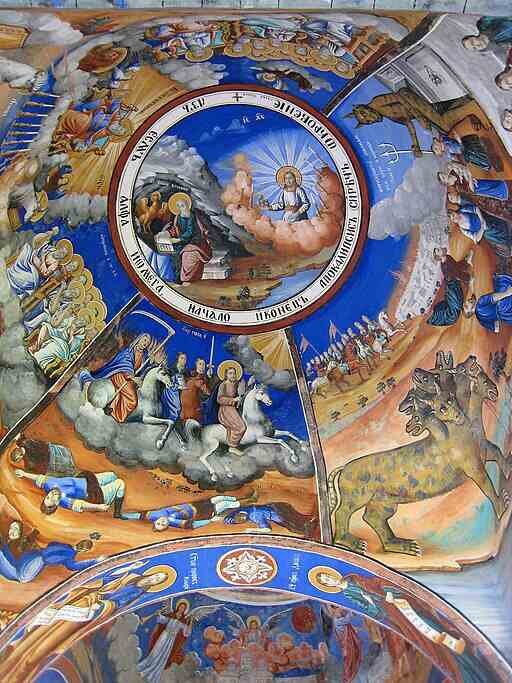Zakat
The zakat or zakaat (زَكَاة zakāt); Arabic word translated by “legal alms” is the third of the pillars of Islam after the attestation of faith and prayer.
In the Muslim tradition, Zakât Al Maal goes to the most vulnerable beneficiaries. Its vocation is to promote sharing and solidarity with the most precarious. For our beneficiaries, it is a right that contributes to reducing inequalities.
The Muslim is required to calculate each lunar year (hegira)1 this amount and to give it “to the destitute, to the poor, to those who work in the service of zakât, to new converts whose hearts need to be strengthened, to slaves [who need it to fulfill their contract of postage], to the indebted [who cannot discharge their debts] to the voluntary fighters and to the traveler [who does not have what allows him to reach his destination” [sûrat At-Tawbah / 60]. Zakat is usually paid during the holy month of Ramadan to double its impact and people can easily calculate zakat on property.
Historically, in Islamic countries, it was the state that collected zakat and redistributed it.
History of Zakat
Scholars are generally unanimous in establishing as the starting point for the establishment of Zakat the year II of the Hegira corresponding to the establishment of Muslim society after the emigration of the Prophet Muhammad (pbsl) to Medina, being however clarified that this alms had already been instituted in Mecca without its rate being fixed, nor a compulsory amount imposed.
In Sura An-Naml, revealed in Makkah, Allah says:
“Ta, Sin. These are the verses of the Qur’an, those of a Book of clear clarity, which constitutes good direction and good news for believers who observe the salât, pay the zakat and have faith in the future life. » Quran 27/1.
Its rate, conditions and provisions were gradually established by the prescriptions revealed in Medina.
Al-Jama’a narrated from Ibn ‘Abbas that when the Prophet (saas) sent Mu’adh Ibn Jabal to Yemen, he said to him:
“You go to people of the Book. Above all, you will invite them to testify that there is no god but Allah and that I am the Messenger of Allah; if they accept, inform them that Allah the Most High has established for them five prayers a day; if they obey you, let them know that they have to pay alms taken from the property of their rich to be distributed to their poor; if they obey you, take care not to take the best of their possessions. Beware of the imprecation of the oppressed, for between it and Allah there is no screen”.
Definition of Zakat
The word “Zakat” means purification in Arabic. There are also other explanations like growth, blessing and development.
Zakat, 3rd pillar of Islam, is mentioned 28 times in the Koran together with prayer, 2nd pillar of Islam, thus demonstrating its great importance.
Zakat is a divine obligation enjoining the Muslim possessing a wealth reaching a certain level (called nissab) to donate part of his property (generally 2.5%) to beneficiaries that God (swt) has precisely defined in the Koran. It is a right due to the poor on the property of the rich.
Paying Zakat is faith-increasing worship. It is a means of purifying one’s possessions of possible illicit gains and the giver of selfishness, avarice, and excessive love of money.
Allah says: “Say: My lord freely bestows or restricts His gifts to whomever He wills among His servants. And any expense that you make (in goodness), He replaces it, and He is the Best giver. » Koran 34/39.
Who is liable for Zakat?
You are required to pay Zakat if you are:
– Muslim, male or female,
– In possession of a wealth that reaches the nissab (the cause or sabab),
– In possession of these goods during a lunar year – the hawl (the condition or the shart).
The vast majority opinion is that the child and the incapable of discernment are also required to pay Zakat if their wealth reaches the nissab. It is their guardians or parents who must pay it for them.
“Make the property of orphans bear fruit, so that they are not consumed by Zakat” (reported by Mâlik, Shâfi’î, Bayhaqî, Ibn Hajar declares it sahîh).
The Nissab
The nissab is the minimum wealth beyond which payment of Zakat is mandatory. The nissab is equivalent to 85 g of gold (about €3,200 on September 1, 2016), or 595 g of silver.
The history of the nissab
In the time of the Prophet (pbuh), there were two different coins to buy and sell. A Gold coin called Dinar and a Silver coin called Dirham. One Gold coin (Dinar) was worth 10 Silver coins (Dirhams).
The Prophet (saas) himself set the value of the nissab. For example, if you had 20 dinars in gold coins or 200 dirhams in silver coins, in addition to your basic needs, you were then liable for Zakat.
Contemporary scholars and in particular Sheikh Al Qardawi weighed 20 Dinars to estimate the value of the nissab today. 20 Dinars are equivalent to 85 g of Gold and 200 Dirhams are equivalent to 595 g of Silver. But the value of Silver has since gone down and today 595g of Silver is only worth around €320 while 85g of Gold is worth around €3200.
So today, what nissab should we take into consideration?
There is a divergence on this subject, but the majority of scholars are of the opinion that the nissab of Gold should be taken into consideration because it is more stable.
Goods subject to Zakat
Zakat is calculated on the money you have, but also on several categories of goods:
– Assets, property and fortune (cash, precious metals, savings books, bank deposits),
– Bank securities (stocks, bonds, treasury bills, investment funds),
– Crops and livestock,
– Salaries and fees,
– Premiums, gratuities and bonuses,
– Legacies.
On the other hand, your private house or your car are not subject to Zakat.
When to pay Zakat?
The day your wealth reaches or exceeds the nissab marks the start of the lunar year at the end of which you must pay your first Zakat. Zakat must then be paid each year on this anniversary date.
If you are unable to remember this date precisely, you will have to try to estimate it.
With regard to the temporal aspect of determining the nissab, the Chafiites and the Hanbalites believe that the condition for the payment of Zakat lies in the continual existence of the nissab for a whole lunar year (the hawl) from its beginning to its end. end. Thus, if the owner of forty ewes manages to lose one during the hawl and acquires a new one afterwards, the hawl is considered to be broken.
On the other hand, the Hanafites consider both ends of the hawl. Therefore, according to them, if the nissab is reached at the beginning and at the end of the current lunar year, Zakat is due even if the good decreases during the year without however completely extinguishing.
The merits of paying Zakat
Respecting this pillar has several important merits to preserve our person and our community.
On the spiritual level: it allows you to get closer to God by obedience and to obtain a purification of your wealth and your soul. God reminds each of us that to Him alone belong all the riches that He places at our disposal and that we are only the depositaries of them; it is an offering of God, who can at any time increase it, decrease it or even make it disappear.
It is a way to fight against saving and excessive love of the goods of this world, by sharing them with those who have the need but above all the right. The social system advocated by Islam makes mercy the basis of all social relations.
On the socio-economic level: it guarantees sustainable economic development by fighting against poverty and unemployment in an effective and permanent way.
On the social level: it makes it possible to distribute the benefits of Allah on the community by making sure to create solidarity between the rich and the poor. It therefore contributes to social justice.
This purifying social tax is of capital importance because it allows the redistribution of wealth in society and makes it possible to ensure a dignified and decent life for everyone, to guarantee social stability through a more equitable distribution of wealth between citizens .
Who can receive Zakat?
Allah has determined in the Quran eight categories for the distribution of Zakat.
• Poor people,
• The needy,
• Those who work to manage zakat,
• Those whose hearts are to be won (to Islam),
• The emancipation of slaves,
• Those who are heavily in debt,
• In the way of Allah,
• The traveler in distress.
“Sadaquats are meant only for the poor, the destitute, those who work there, those whose hearts are to be won (to Islam), freedom from yokes, those who are heavily in debt, in the path of Allah, and for the traveler (in distress). It is a decree of Allah! And Allah is Knowing and Wise. » Quran 9/60
Here is an explanation of these eight categories.
Who cannot collect Zakat?
Persons who cannot benefit from Zakat are:
• The rich,
• A person who is healthy and working,
• A person who is in good health and who refuses to work to support himself,
• Non-Muslims (except those whose hearts are up for grabs),
• Some close relatives.
(Scholars agree that it is unlawful to give Zakat to one’s father, grandfather, mother, grandmother, children and grandchildren. It is also unlawful for a husband to give Zakat to his wife.)
• Members of the Prophet’s family (Banu Hashim and Banu Abdou al Mouttalib).
Zakat al-Fitr
Zakat al fitr or “alms for breaking the fast” is also an obligation for every Muslim and must be paid each year at the end of the month of Ramadan.
Zakat al fitr purifies the fasting person from futile and indecent words and it is, like Zakat al maal, a blessing for the poor. This allows them to spend the feast of Eid al fitr in better conditions, because the Prophet (saas) said: “Spare them from begging on the day of Eid“.
According to Ibn ‘Omar (may Allah be pleased with him):
“The Messenger of Allah (saas) made it obligatory to give alms for breaking the fast by giving a saa’ of dates or a saa’ of barley to every slave or free person, male or female, small and tall among the Muslims. Then he ordered it to be handed over before the people went to the (Eid) prayer” [Reported by Al Bukhari, Muslim, At-Tirmidhi, Abu Daoud, Nasai and Ibn Madja].
Every Muslim must pay it for himself and all those who are dependent on him, such as his wife, children, parents etc. As described in the hadith opposite, it can be offered in the form of a “saa'” (measure of about 2.7 kg) of wheat, dates, or other foods. Today, scholars have concluded that it can be given in money.
Sources: PinterPandai, Investopedia, Zamzam, National Zakat Foundation (NZF)


